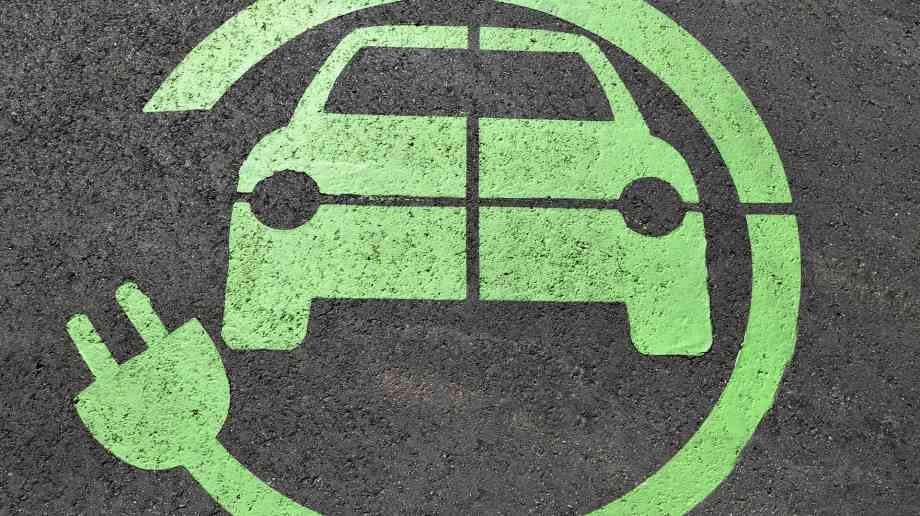Sue Robb of 4Children talks to Julie Laughton and Alison Britton from the Department for Education about the role of childminders in delivering the 30 hours free entitlement.
‘Electric revolution’ in capital’s transport promised by Khan

The Mayor of London Sadiq Khan outlined his plans for a major expansion of London’s electric vehicle-charging network to ensure the capital continues to be one of the world’s leading zero-emission cities.
London currently hosts 25 per cent of the UK’s electric vehicle charge points - more than any other UK region, with 2,400 public chargers spread over 1,200 locations. London Boroughs have also installed more than 1,100 overnight residential charge points as part of the ‘Go Ultra Low City’ partnership between the Greater London Authority, TfL and London Councils.
Khan has brought together the public and private sector to deliver the electric vehicle infrastructure Londoners need. This includes commitments by businesses and retailers to transform EV charging provision in London over the coming years. This follows the introduction of the world’s first Electric Vehicle Infrastructure Taskforce, bringing together representatives from business, energy, infrastructure, government and the London boroughs. The past year has seen more than 140 organisations contribute to the work of the Taskforce.
The plan outlines how London is on track to deliver the necessary infrastructure for a radical growth in electric vehicles, which estimates show could increase from around 20,000 today to over 330,000 by 2025. This will be driven by a combination of new low-emission regulations, supportive policy at all levels of government and a decrease in the cost of electric vehicles.
Khan said: “London’s air is so dirty and polluted that it amounts to nothing less than a serious public health crisis. It breaches legal limits and blights the lives of Londoners, resulting in thousands of premature deaths every year. We are also facing a climate emergency that threatens the long-term security and wellbeing of every Londoner.
“We need to reject the fossil fuels of the past and embrace an electric revolution in London’s transport. To truly transform the quality of our air and to tackle the climate crisis London must move away from petrol and diesel cars, with their catastrophic impact on the environment, and towards zero- emission vehicles.
“I want London to lead the world in this ambition, with all new cars and vans on London roads to meeting these standards by 2030, not 2040 as the government is proposing. To make this vision a reality we must make sure all Londoners have access to the essential infrastructure required to run and maintain an electric vehicle. This is a massive operation and can only be achieved if the public and private sector come together to deliver London’s electric future.”
Daniel Brown, EV lead at the Renewable Energy Association, said: “In coordinating over 140 stakeholders from the property, energy, and fleet sectors and beyond, the EV Infrastructure Taskforce has come up with a robust plan that can be taken forward. From energy suppliers to charge point developers the private sector stands ready to deliver on this vision.
“Issues addressed in this plan including interoperability, identifying affordable grid connections, and finding suitable sites for the range of types and speeds of chargers required, are crucial for advancing a mass market.
“We hope that many of the lessons learnt in developing this plan can now be taken not just into other cities but into other sectors. The renewable power and energy storage industries would also benefit from some of the Taskforce proposals and commitments, such as greater infrastructure deployment coordination and more proactive approach from electricity networks to identifying suitable grid locations.”
Khan made the announcement at the launch of the London EV Infrastructure Delivery Plan at the Institution of Engineering and Technology.
Company Focus
Located in Bromley, Japanese Knotweed Eradication Ltd has been providing solutions in the treatment and removal of Japanese Knotweed (Fallopia Japonica) for over a decade. During this time we have mastered a repertoire of methods, from herbicidal treatments to landscaping solutions, tailored to address the unique challenges our clients face with this pervasive weed.
Event Diary
UKREiiF has quickly become a must-attend in the industry calendar for Government departments and local authorities.
The multi-award-winning UK Construction Week (UKCW), is the UK’s biggest trade event for the built environment that connects the whole supply chain to be the catalyst for growth and positive change in the industry.
Supplier Profiles
Geo Energy
At GeoEnergy Design, we're on a mission to disrupt the traditional way heating and cooling ha
Latest Features
Professor Harith Alani, director of the Knowledge Management Institute at the Open University explains how AI can be used for good and bad.
Alex Lawrence, head of health & social care, techUK sets out techUK’s Five Point Plan for CareTech.

















